One of the greatest pleasures of independent travel is finding out that you’re wrong.
All those things you thought you knew about a place before the plane landed? They’re thrown out the window, happily, as you see it for yourself. It’s not that all the stuff you’ve read was written by a bunch of liars (I’ve no desire to disparage myself or my fellow travel writers, after all), only that they experienced the place through their filter – and you read about it through your filter. It’s a travel-related game of operator: by the time you walk out of the airport, you’re not even sure what the original directive was anymore.
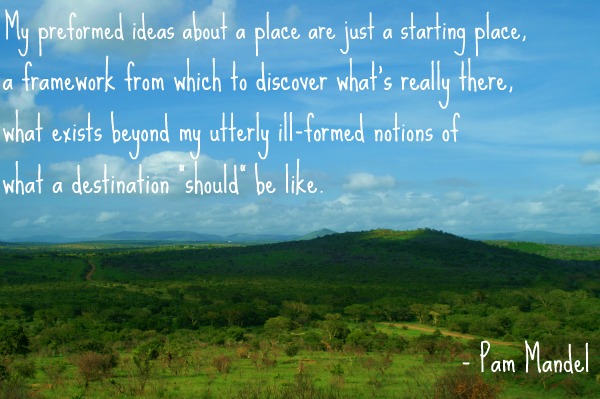
South Africa carries with it some pretty hefty baggage in this regard – it’s far away from so much of the rest of the world that what we “know” about South Africa comes to us largely through brief news snippets, sweeping movie landscapes, or apartheid documentaries on the History Channel.
You know there’s more to South Africa than that. You just don’t know what.
Here are the main four points on which you and just about everyone else is wrong about South Africa. When you’re done reading, I highly recommend you get on a plane to South Africa as soon as possible so you can see for yourself, come back, and tell me how wrong I am. This, I assure you, has all the makings of a fun, life-long game. Who’s in?
[social]
1. You Think it’s Too Expensive
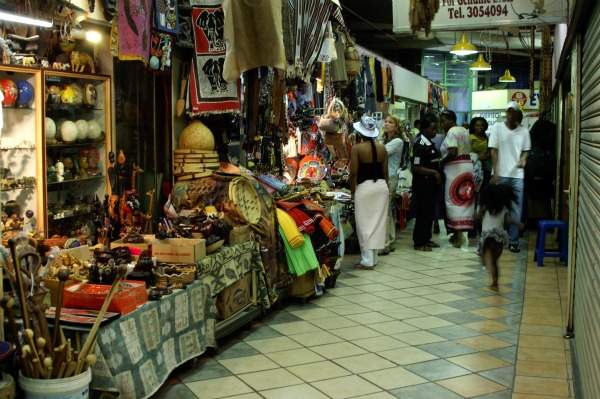
Perhaps the biggest misconception about South Africa as a travel destination is that it’s a once-in-a-lifetime trip because it takes an entire lifetime to save up for it. You can certainly spend several thousand dollars on a luxury safari adventure, but you can do a South Africa trip on a budget – and no, you don’t have to skip the safari to do that.
The biggest expense of most trips is airfare, and airfare to South Africa is no exception. It’s quite a distance to travel, so you shouldn’t expect to find $300 fares from New York. You can, however, plan to visit during the airfare low season – December through February – and save a bundle on a ticket. The airfare low season corresponds with South Africa’s on-the-ground summer high season, so while accommodation and activity costs may be higher, airfare will be much lower. Alternately, you could bite the bullet and pay high season airfare – June through August – and take advantage of low-season winter prices on accommodation and activities.
Even in South Africa’s summer months, however, you might be surprised at how far your money can go. At the beginning of December 2011 (when I took my trip), there were fares to be had round-trip from New York to Johannesburg in the $1000-1200 range. Considering the distance traveled, that’s not bad – and there are sub-$1000 fares offered every so often, too. Prices on mid-range accommodation for two in December were $100-200/night, and there are certainly cheaper options available – hostels, for instance, range from $16-20 for a dorm bed.
All-inclusive stays at safari lodges can be expensive, but that’s not the only option you have to see the animals. You can stay in St. Lucia, a quiet beach town in KwaZulu-Natal known primarily for the hippos that wander down the main drag in the middle of the night, and go on safari day trips to the nearby iSimangaliso and Hluhluwe-Umfolozi game reserves. A 4-star B&B in St. Lucia only costs about $100/night in the summer (there are cheap hostels in St. Lucia, as well), and those safari day trips (including lunch) range from $50-98 per person.
There’s some exciting food to enjoy in South Africa, and you can eat well in highly-regarded restaurants without taking out a loan. Even the signature wines at some of the country’s best-known vineyards often cost less than $15/bottle, so buying bottles as you go and either bringing them to restaurants (paying the corkage fee) or adding them to your kitchen if you’re in a vacation rental is very economical. (Sadly, shipping them home is not.) And of course, South Africa’s favorite fast food – Nando’s – is pretty damned good stuff that you can get for chump change.
Can you spend a small fortune on a South Africa trip? Sure. But there’s absolutely no need to.
>> Learn more about budget safaris at Kruger National Park
2. You Think it’s All About the Safari
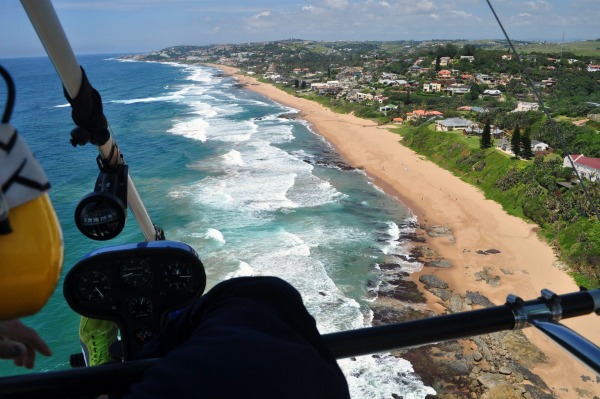
Let’s face it – when you hear someone say they’ve been to South Africa, what’s the first (and usually only) question you ask? You ask about the animals. What animals did they see? How was the safari? Yes, you can go on safaris in South Africa, and you can see a staggering array of animals. And that’s far from all there is to do in South Africa.
Depending on where you are in the country, you can do the following things:
- Taste unique wines, made from grapes originally bred in the country
- Dip your toes in two different oceans
- See leatherback turtles laying their eggs on the beach in the middle of the night
- Ride 4-wheelers through hills and vineyards
- Crawl through small passages to reach cathedral-sized caves inhabited in the Stone Age
- Go cage-diving with Great White Sharks
- Visit the smallest floral kingdom on earth
- Find out what African penguins have the nickname of “jackass penguins”
- Test the stamina of your lips by blowing a vuvuzela at a soccer match
- Take micro-light flights over the countryside and beaches
- Go surfing
- Sample award-winning food at the best restaurant in Africa and the Middle East
- Do the third highest bungee-jump in the world
- Ride an ostrich (or at least get a massage from an ostrich)
- Go paragliding
- Ride horses along the beach, looking for hippos and crocodiles
- Adopt a penguin
- Shop for Indian spices in the same city in which once Ghandi lived
- Go whale watching
- Kayak through an estuary full of hippos and crocodiles
- Bungee into a World Cup soccer stadium
- Visit a township
- Photograph baboons alongside the road (and try not to let them steal your purse)
You’d have to spend quite a bit of time in South Africa to exhaust every other activity besides safari – and you’d still have awesome safaris to look forward to. In short, South Africa will never, ever let you get bored, and the country seems to delight in surprising you. The fact that South Africa not only offers plenty to do and see besides animals on safari but that you could easily create a packed two-week itinerary and never set foot in a safari vehicle is mind-boggling.
You should, of course, not miss an opportunity to do a safari. You just shouldn’t think of South Africa as a safari-only destination.
>> Browse your options for adventure tours in South Africa
3. You Think it’s Too Dangerous

South Africa often ends up in the news for the wrong reasons. We hear about frighteningly high crime rates and the high number of people who are HIV-positive and we think that it’s not a safe country in which to travel. To dismiss the very real issues with crime in South Africa would be foolish, but smart travelers can enjoy trips to South Africa without being in a constant state of worry.
Crime statistics for South Africa aren’t fun to look at, and most guidebooks (as well as the staff at your hotel or hostel) will tell you not to go into certain neighborhoods at night or without a guide – or at all. This is advice you should follow. Crime is a problem even in cities that appear polished (you’ll still see tall gates topped with razor wire in front of many buildings), and tourists are seen as they are anywhere else on earth – we’re easy targets.
There are precautions every traveler must take when they’re in unfamiliar territory, but in South Africa the usual “being aware of your surroundings” and “using a money belt” isn’t enough, unfortunately. Thieves can be more aggressive here than just picking your pocket, and car hijackings and sexual assault aren’t uncommon. Use the hotel safe, even if you’ve never bothered before. Don’t carry your passport with you when you go walking around town, and keep your credit cards and most of your cash in the hotel safe if possible. Don’t wander at night, especially alone, and don’t drive at night if you can help it. Keep an eye on your drink at the bar. Stick to bank machines that are actually inside banks.
All of this may sound as if I’m confirming what you think you know, that South Africa is too dangerous – but the truth is that while taking these precautions can sound scary to some, none of these actions will ruin your trip. In fact, many of the activities for which travelers come to South Africa – safaris, shark cage diving, whale watching – are done with guides or through tours and are completely safe. Even when you’re on your own, you’ll have an exceptionally good time, despite not taking long nighttime walks or drives.
Safety in South Africa is about being aware of the problems, first and foremost, and taking the necessary precautions so that you don’t run into those problems head-on. It’s not paranoia, it’s preparedness. And it absolutely should not stop you from coming to South Africa and enjoying every second of your trip.
>> Read more about crime in South Africa and some South Africa safety tips
4. You Think You’ll Get Sick
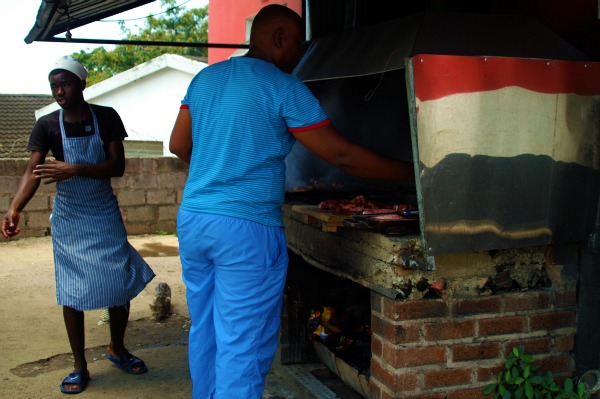
South Africa is in Africa, and that means you can’t drink the water and you need to take malaria pills, right?
Not necessarily.
You can drink the tap water in most of the cities – and that’s not just in the high-end hotels, either. In fact, high-end doesn’t mean you can drink the water – the continent’s top luxury game reserve, Phinda, says you really shouldn’t drink the tap water way out there. Anywhere you shouldn’t drink the water, however, there’s plenty of bottled water to be found, either in hotels or at any corner store.
As for malaria, I’m not a doctor – and you should consult your doctor for the advice that best suits your medical situation – but I’ll tell you that in my group of six travelers from the United States (only two of whom had ever been to South Africa before) I was the only one who had elected to take malaria pills. I have a crappy track record when it comes to health-related stuff, and I didn’t want to take my chances. Do you have to take malaria pills for a South Africa trip? The short answer is “it depends.” The long answer is that you should make sure the places you’ll be visiting aren’t in malarial zones, and (again) you should talk with your doctor to make the decision that’s best for you.
The bottom line is that South Africa isn’t in the same category as the countries where you’re almost better off budgeting extra time during a vacation to make up for all the hours you’ll spend hunched over a toilet or in bed with a fever. You’re much more likely to get sick because you’ve tried to pack too much awesomeness into too few days and you’ve run yourself ragged. Which, to be fair, isn’t a terrible way to go.
>> Read about ways to stay healthy when traveling (or, for the tongue-in-cheek antonym, how to get sick when traveling!) and don’t forget to get travel insurance before you go
You Think It’s Just Another Vacation
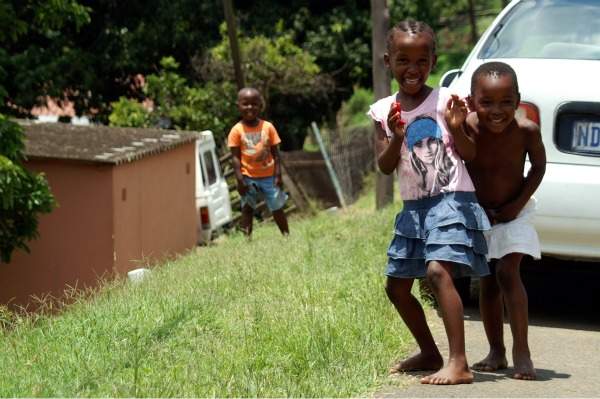
There are places in the world where you’ll visit, return home, post photos to Facebook, and promptly move on to the next destination on your wish list.
Then there are places like South Africa.
I don’t have enough synonyms for “stunning” or “astonishing” in my vocabulary to describe my trip there with any degree of accuracy – the country simply floored me. I was blown away by the constantly-changing scenery, one dramatic landscape leading to the next, from rugged mountains to turquoise oceans to manicured vineyards. I wondered aloud if we’d left one country and entered another, such was the diversity of terrain, people, languages, animals, and food. The number of experiences one can have in South Africa that rightly qualify for many a bucket list is remarkable, and even those barely scratch the surface of what awaits the traveler.
Before I left, I was told by someone who had recently returned that “South Africa changes you.” She acknowledged this is a common thing to say about many countries, and she wasn’t surprised when I seemed skeptical. “We’ll talk when you get back,” she said. I sent her a message before I’d even boarded the flight home to tell her she’d been absolutely right. South Africa had crawled into my heart and it has found a happy home there. I missed it instantly upon leaving, and am already trying to figure out when I can get back.
Being wrong about a place gives the curious traveler an opportunity to feel like an old school explorer, “discovering” places as if no one as ever seen them before. However erroneous that feeling may be, it remains a powerful one – to suddenly see pieces fall into place, to understand something that was a mystery a few moments before, is heady stuff. And although it can be jarring to be proved wrong, it’s the best possible kind of jarring there is.
I’ve never felt so rewarded by acknowledging how wrong I was about a place as I felt in South Africa. The country expected my shortcomings, welcomed them, then sat back and watched with a smile as the lightbulb went off over my head – repeatedly. I invite you to have that same enligtening experience for yourself.
Full Disclosure & Whatnot: The trip I was on was hosted by South Africa Tourism. My opinions, and the unbridled enthusiasm I feel for South Africa, are entirely my own.
Further Reading:
- Traveler Postcard: Jessica in South Africa
- 7 Affordable Places to Go on an African Safari
- Nine Amazing Adventures to Add to a Trip to Southern Africa
- Chasing Elephants and Decoding Dung: On Safari in Kruger National Park
- 10 of the World’s Most Dangerous Animals and Where to Find Them
- Top 10 Indie Travel Destinations for 2012
photo credits: microlight photo by David of South Africa Tourism, Durban soccer fans photo by Matt the Expert Vagabond; all other photos by Jessica Spiegel and may not be used without permission; quote included in the photo at the top is by the fabulous Pam Mandel
